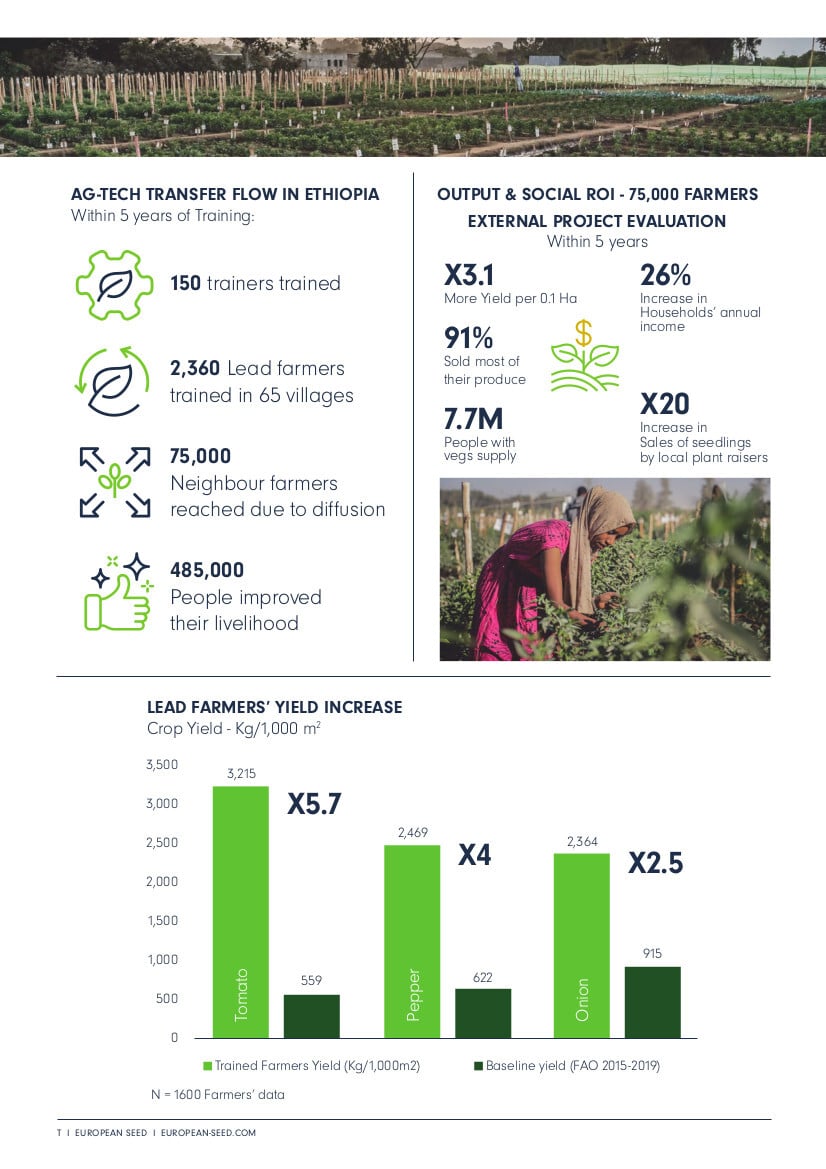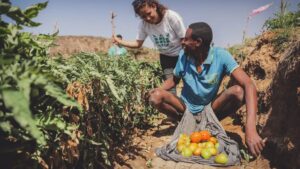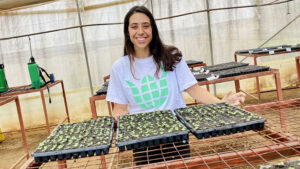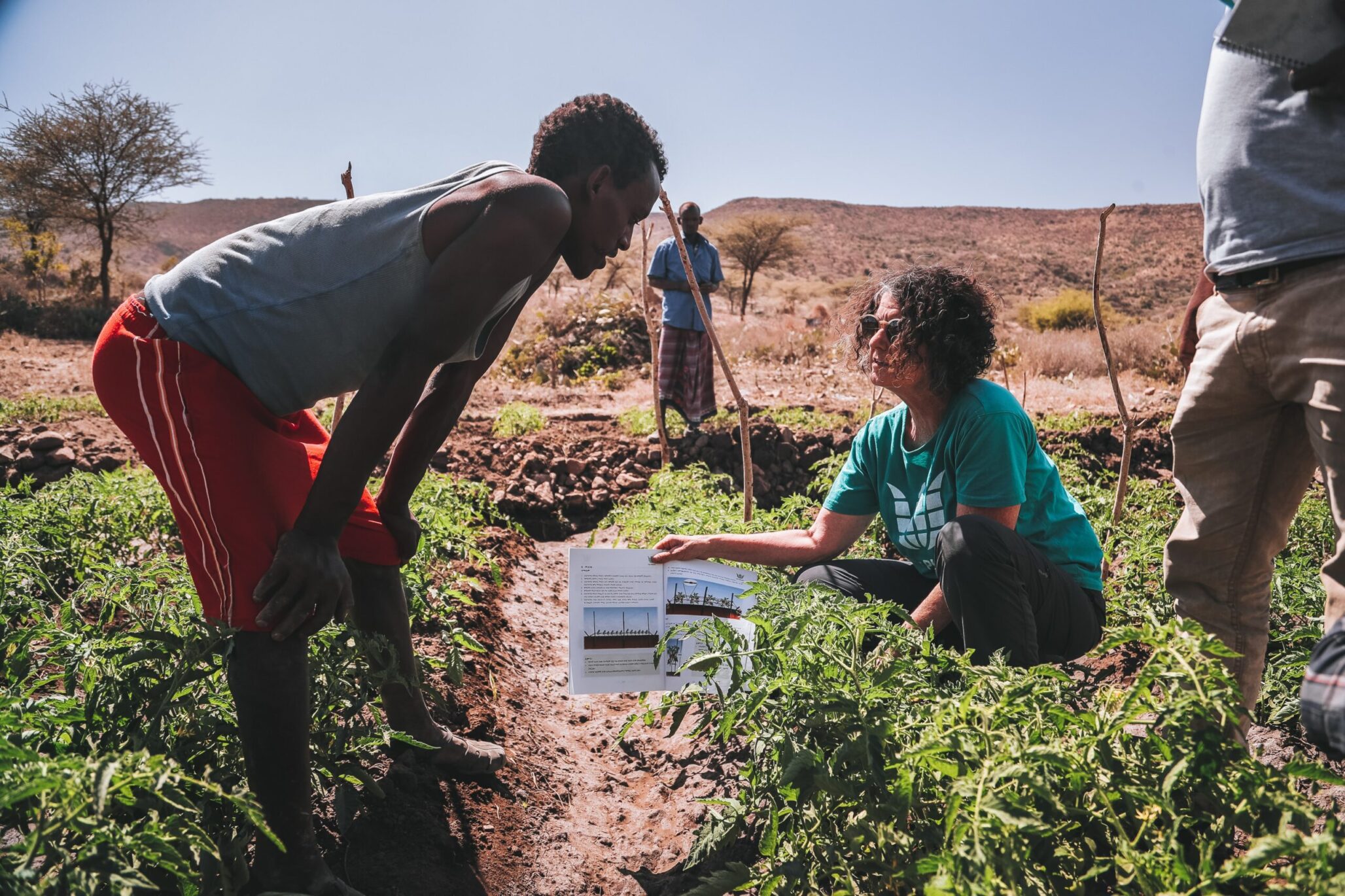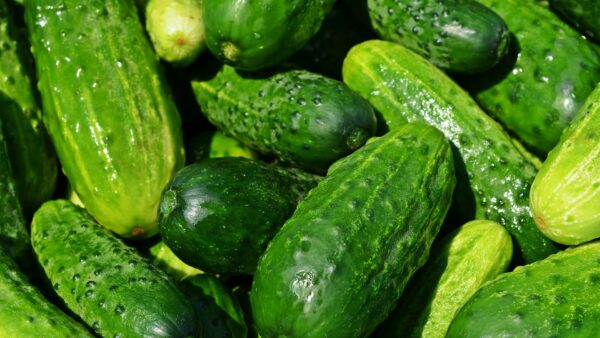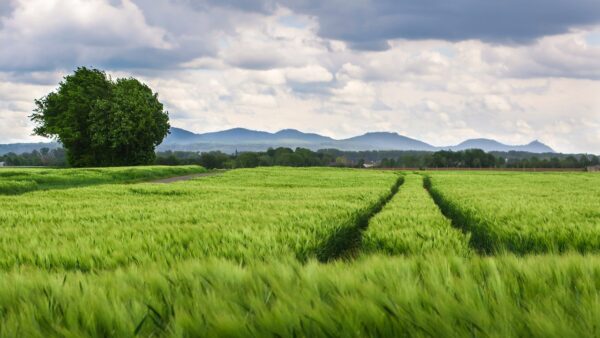Why it Matters
People in Africa are trapped in a vicious cycle of poverty and hunger. And it is difficult to provide them with food security and economic opportunities. One way of helping is by making high-quality vegetable seeds, suitable to local conditions, accessible and affordable to local farmers.
NGO Fair Planet is bridging the current gap between existing high quality seed varieties developed by leading seed companies and transfer technologies and know how to smallholder farmers in Africa. European Seed sat down with Shoshan Haran, founder and president of Fair Planet to find out how they do it.

European Seed (ES): Can you tell me in a nutshell why you founded Fair Planet and what Fair Planet is trying to achieve?
Shoshan Haran (SH): It all starts with my background: I was born in kibbutz Be’eri in Israel and worked in the kibbutz fields for many years. I then decided to study plant science at the Hebrew University of Jerusalem. After completing my Ph.D. and a post-doctoral fellowship at Rutgers University in the U.S., I joined Hazera as head of R&D collaborations and later served as head of Limagrain’s Genomic Expert Group.
These positions gave me a unique opportunity to develop an extensive network within the seed industry. I learnt about cutting-edge technologies that breeders use to develop seed varieties with higher yields and resilience to climate change, which help farmers to produce more food and increase their farming income.
During a private trip to Africa, I realized that smallholder farmers do not have access to these improved varieties. Their current farming practices are not productive enough to become a reliable and decent source of income and as a result, their families suffer from extreme poverty and malnutrition. I understood that something needs to be done to bridge the seed gap and started brainstorming ideas with friends and colleagues.
These discussions led me to establish Fair Planet in 2012, a non-profit organization with a mission to provide smallholder farmers in developing countries with means to exit the cycle of hunger and poverty through access to high quality seeds and better farming practices.
Fair Planet is managed and advised by senior seed experts who have lifetime experiences in the seed industry. Our vision is a world where all farmers have equal opportunities for sustainable economic growth and prosperous life. We develop the capacity of smallholder farmers to transform agriculture into a profitable source of income through access to high quality seeds and knowledge on Good Agricultural Practices (GAP). Our unique operational model is directed to maximize impact as well as create regional independence and economic sustainability and it is aligned with the UN Sustainable Development Goals (SDGs): No Poverty (SDG1) and No Hunger (SDG2). To date, half a million people have been impacted by Fair Planet’s work.
ES: Why was it necessary to start Fair Planet?
SH: The great majority of smallholder farmers in Africa are subsistence farmers who farm very small plots of land. They grow their crops from local seeds and lack knowledge on GAP, resulting in very low yields and extreme vulnerability to climate change. Many of them are illiterate and have very low technical and economic capacity. Reaching these farmers and training them how to use high quality seeds is extremely difficult and the current way of doing business in the seed industry, which typically serves relatively large scale and/or knowledgeable farmers, does not fit for serving them. Therefore, another approach was needed to resolve this market failure and bridge the gap between the providers of the best seeds in the world and the poorest farmers.
ES: What is your approach? How do you engage Private and Public Partners and how are they involved?
SH: We realized, from day one, that a sustainable solution should be based on a win-win business model, in which both the poor farmers and the seed developers will benefit, and gain added value. Fair Planet established a broad alliance with leading seed companies and formed an open aid platform, unique to the industry, through which it has access to a worldwide collection of seed varieties.
On the other hand, Fair Planet partnered with agricultural universities in the target countries that provide professional staff, trial plots and infrastructure for testing the varieties in local conditions.
The next step was partnering with the extension services of local bureaus of agriculture. Together with them, we developed tailor-made crop production guidelines that are suitable for smallholders. These include graphic illustrations and use locally available ag-inputs and simple measurement tools. For example, we developed a system for precise fertilization using soda bottle caps (available everywhere) for measuring the volumes of fertilizers for each growth stage of the plants.
A very important component of the training methodology is on-farm mentoring of lead farmers through weekly visits in their own fields, to ensure proper adoption of high-quality seeds and implementation of GAP. The lead farmers serve as key agents of change: their success motivates their neighbours to adopt these practices. To enable these outreach activities, we engage dozens of volunteers who are trained and guided by Fair Planet experts. The volunteers visit lead farmers’ fields on a weekly basis together with the local trainers and facilitate information flow between farmers, Fair Planet’s experts and the local trainers, provide ongoing guidance and collect data regularly on crop yields and income. In my opinion, this approach, of engaging existing local infrastructure (university and extension services) and seed providers who secure the supply of the selected varieties from the beginning, combined with independent variety trials and followed by on-farm training of lead farmers, is the basis for sustainable outcomes and a successful exit strategy.
ES: How do you select the lead farmers?
SH: The local extension teams choose the lead farmers. They know who the early adopters and opinion leaders in each village are. We found that, at least in Ethiopia, lead farmers are sharing their knowledge and experience with their neighbours. They share their success and invite them to learn best practices. The program also builds the capacity of local trainers, who continue to pass on their knowledge to a larger circle of farmers, thus exponentially increasing the dissemination of high-quality seeds and best practices, leading to a strong ripple effect and a very quick spread of the technology.



